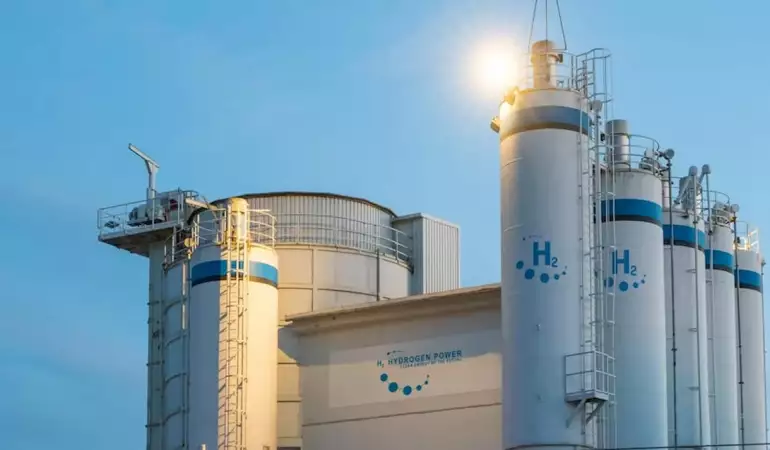Scientists have developed an environmentally friendly way to produce hydrogen for fuel
Scientists from Cardiff and Beijing Universities have presented an innovative method for producing hydrogen gas with zero carbon dioxide (CO2) emissions.
February 15, 2025 07:42
The study lasted over ten years
Cardiff University has announced that this new method is environmentally friendly, significantly reducing harmful CO2 emissions.
This achievement is the result of a long-term collaboration between researchers from Beijing and Cardiff Universities and marks a significant breakthrough in the chemical industry.
How it works
The new hydrogen production process involves reacting hydrogen-rich bioethanol from agricultural waste with water at a temperature as low as 270°C using a new bimetallic catalyst.
This method is much more efficient than traditional processes, which operate at temperatures of 400-600°C, are energy intensive and generate large amounts of CO2.
Instead of CO₂2emission, this process also produces high value acetic acid. This is an organic liquid substance widely used in food preservation, household cleaning products, manufacturing and medicine.
According to the researchers, this achievement marks a major step towards the decarbonisation of the chemical industry. It is also an important step towards carbon-neutral hydrogen production, where biomass by-products generate high-value chemicals.
"Finding a sustainable way to create the products we need for everyday life and to achieve carbon zero targets in the future is a major challenge facing the chemical industry," said one of the study's authors, Graham Hutchings, Professor of Chemistry at Cardiff University.
Fueling the drive for zero carbon
The world is moving towards zero carbon targets to reduce CO2 emissions. This is reflected in the shift away from petrol-powered cars towards electric and hydrogen-powered vehicles.
"This innovative catalytic technology has great potential to boost the green hydrogen economy and support global carbon neutrality goals," said Professor Ding Ma, head of research at Peking University.
Last year, Professor Ma chaired a policy review at the Royal Society in London on the decarbonisation of the chemical industry. The work he led brought the world closer to achieving this goal.




